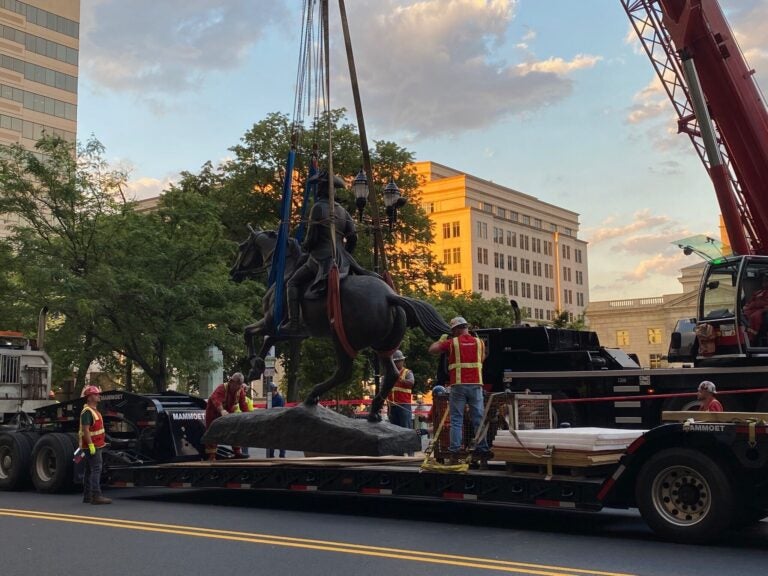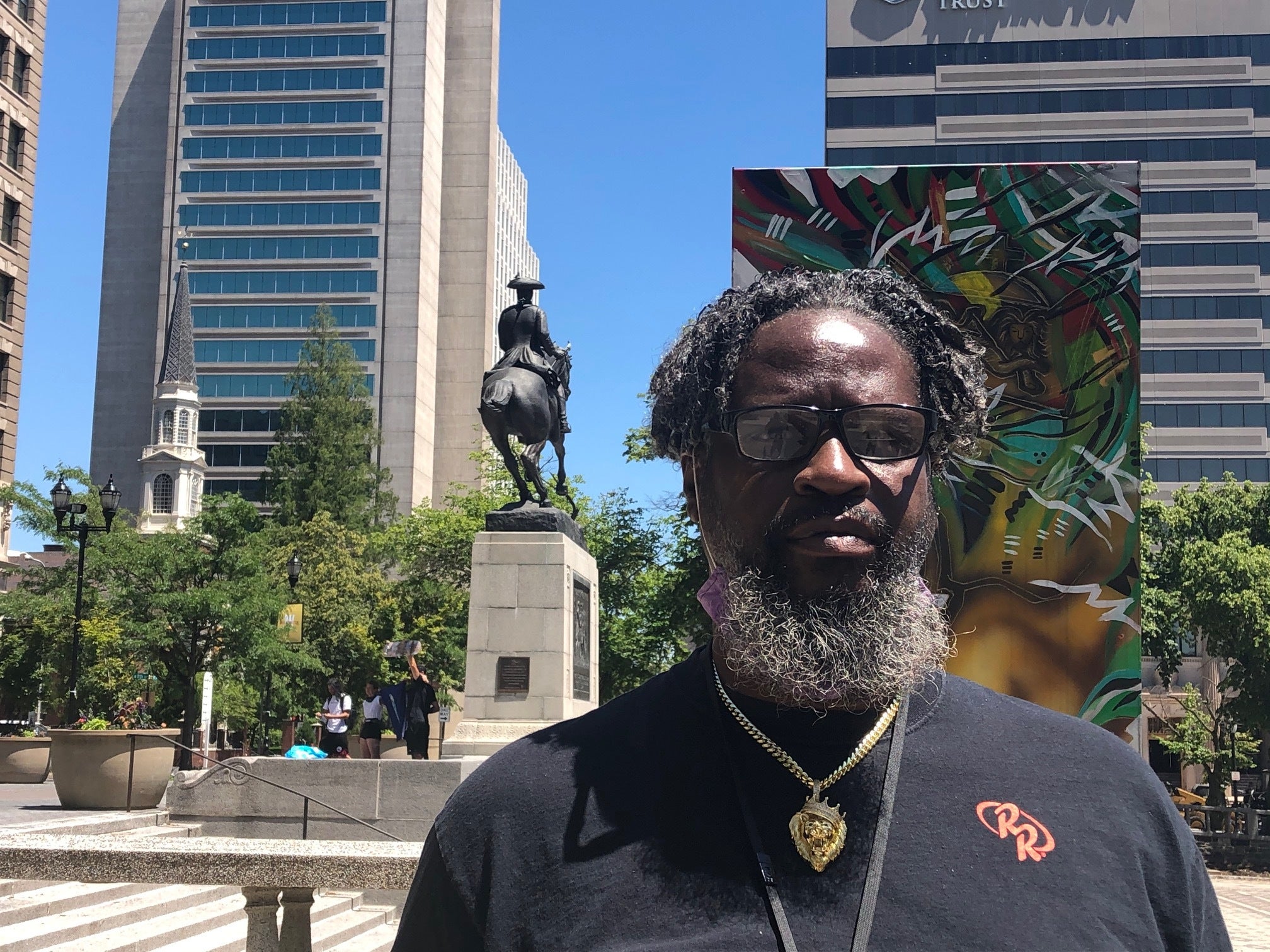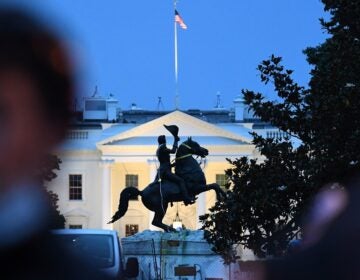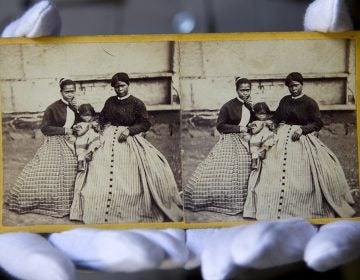Wilmington’s statues of Columbus and Caesar Rodney coming down — at least for now
Bronze monuments to the two historical giants have stood in Wilmington for decades. But the mayor wants to “have discussions” about whether they should remain.

The City of Wilmington removes the Caesar Rodney statue. (Courtesy of the City of Wilmington.)
Wilmington officials are removing two of the city’s most iconic statues – of Declaration of Independence signer Caesar Rodney and explorer Christopher Columbus – to prevent them from potential damage, and to foster what Mayor Mike Purzycki called “an overdue discussion about the public display of historical figures and events.”
Columbus came down on Friday morning. The bronze statue, made in his native Italy, has been on Pennsylvania Avenue, one of downtown’s western gateways, since 1957.
For nearly a century, the bronze Caesar Rodney statue has towered over a square in the heart of downtown named for him.
The piece, atop a massive stone slab, depicts Rodney on a horse. It commemorates his famous 80-mile ride to Philadelphia in 1776 to cast the deciding vote for the Declaration of Independence on behalf of the 13 American colonies breaking away from English rule.
The removal of Rodney, who owned slaves, took place early Friday night.
The city decided to take action just hours after police in Dover discovered that a statue honoring law enforcement officers killed in the line of duty was axed and two urine-soaked state flags were left nearby.
Purzycki noted that in the wake of the protests for racial justice, spurring from George Floyd’s death at the hands of a Minneapolis police officer last month, “memorials, statues, and other public displays are being scrutinized as part of the racial justice reform movement underway throughout America.”
Activists have targeted Confederate monuments and colonists for removal or destruction since the death of Floyd, who was Black. For example, protesters in Richmond, Va., toppled a statue of Jefferson Davis, president of the breakaway Confederacy that fought the Union in the U.S. Civil War.
In Philadelphia, after being vandalized, and attempts to set it on fire, the city removed its statue to former mayor and police commissioner Frank Rizzo — who is known for his hard-on-crime tactics that disproportionately affected people of color.
Purzycki said that social media posts that the city has been monitoring indicated that people and groups were “poised this weekend to damage or remove the statues.” Purzycki said they are being taken down preemptively to give him time to hear different perspectives and chart a course for the future.
“We cannot erase history, as painful as it may be, but we can certainly discuss history with each other and determine together what we value and what we feel is appropriate to memorialize,” Purzycki said.
“We can determine together how we should proceed as a city when it comes to public displays,” he added. “In this period of awakening for our city, state, and country, we should be listening more to each other and building a more just city and a better America.”
The mayor’s decision received mixed reviews on Friday.
Nick Gurtain of Wilmington, who is white, agreed with some of the handful of people on the outskirts of Rodney Square — which is undergoing an extensive renovation — that the city might be wise not to return the statue to the perch it has occupied since 1923.
He noted that Rodney owned slaves and that Columbus “raped and pillaged’’ indigenous peoples during his seafaring voyages.
“I think it’s about time that the nation recognized what it’s actually founded on,’’ Gurtain said. “And they acknowledge that they need to take down these statues that symbolize something that is so offensive to so many people.”

Julian Miller, who is Black, countered that he accepts the Rodney statue as part of the city’s landscape.
“I think the statue’s all right,’’ Miller said. “I’m in a fight for justice but you know, I don’t think it pertains to all that.”
WHYY is your source for fact-based, in-depth journalism and information. As a nonprofit organization, we rely on financial support from readers like you. Please give today.






